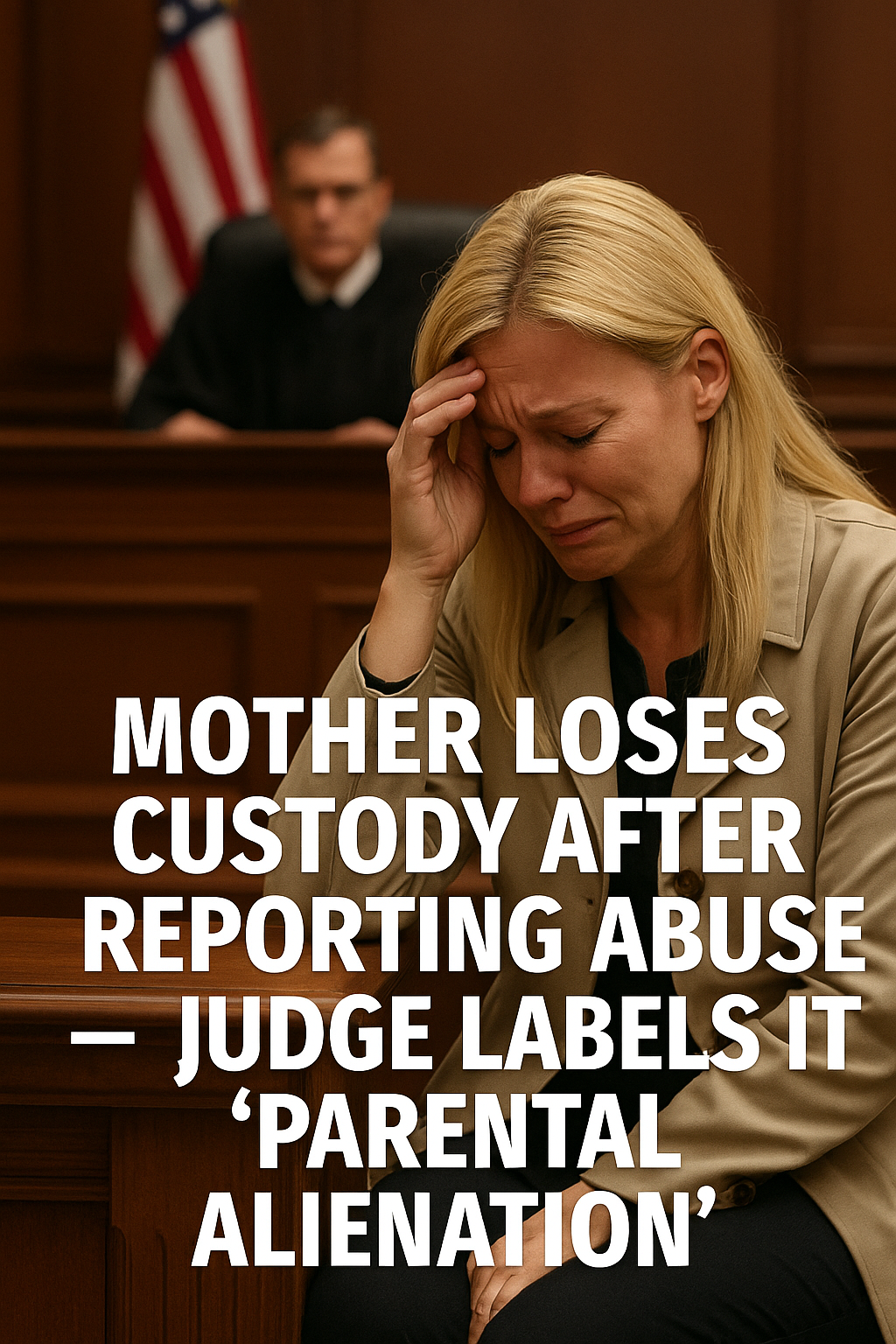
Mother Loses Custody After Reporting Abuse — Judge Labels It ‘Parental Alienation’
What happens when a mother does everything right to protect her child — and the court punishes her for it? In family courts across the country, mothers like Sarah are losing custody not because they’re dangerous, but because they dare to report abuse.
She Reported the Abuse — Then Lost Her Daughter
Sarah noticed her daughter becoming anxious after visits with her ex-husband. The child’s drawings became darker. Her behavior shifted. A pediatrician raised concerns, and Sarah did what any protective parent would do: she spoke up.
But instead of protection, Sarah was met with suspicion. The judge said she was trying to sabotage her daughter’s relationship with her father. Despite submitting school reports, counselor notes, and medical evaluations, she was accused of “parental alienation.”
The Weaponization of a Pseudoscience
The term parental alienation has been widely discredited in its misuse, but courts still rely on it to dismiss abuse claims. In Sarah’s case, her concern was rebranded as manipulation. Her credibility was destroyed, and her daughter was placed in the custody of the very man she feared.
Internal System, External Silence
Stories like Sarah’s echo those in When the Protector Becomes the Accused and Judge Ignored Evidence of Abuse. The pattern is clear: protective parents — especially mothers — are punished for advocating for their children’s safety.
Family court often functions behind closed doors, with no jury, no public transcript, and very little oversight. Judges wield broad discretion, and that discretion too often favors the more composed, less emotional party — regardless of truth.
“You’re Just Trying to Hurt Him”
That’s what Sarah was told in court when she cried over losing access to her daughter. Her ex smiled and thanked the judge for a “fair decision.” Meanwhile, Sarah was given supervised visits and a warning: if she brought up abuse again, she could lose contact entirely.
A Failing System With No Accountability
There’s no consequence for a court that places a child with an abuser. No audit. No follow-up. No apology. Sarah’s daughter is now in therapy for anxiety, and Sarah’s been told that regaining custody could take years — if ever.
This Is Happening Nationwide
Sarah is not alone. Across the country, protective mothers are being labeled unstable, vindictive, or alienating — all for doing what a parent is supposed to do: protect their child. It’s time to reform the language, the laws, and the power structures that let this happen.
If her story sounds familiar, you’re not imagining it. It’s real. And it’s wrong.
